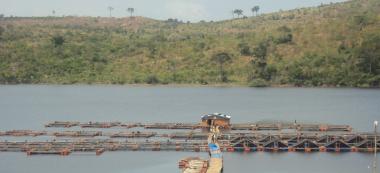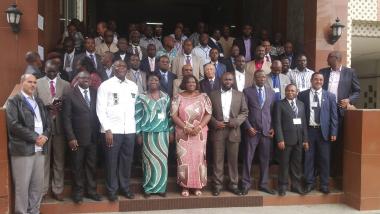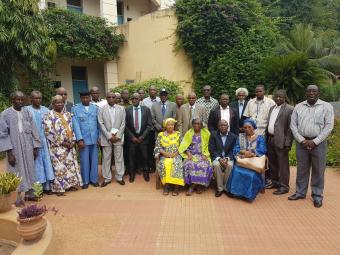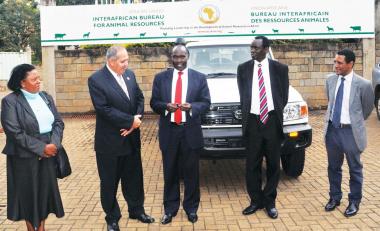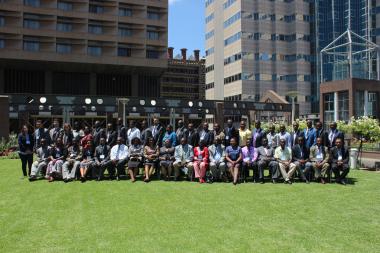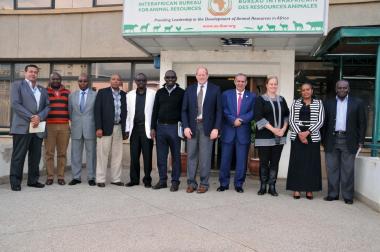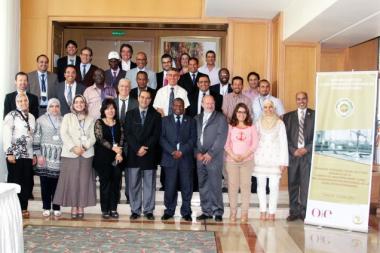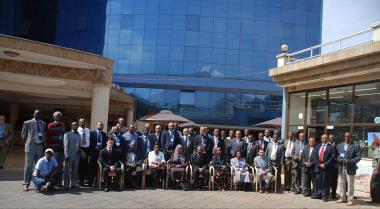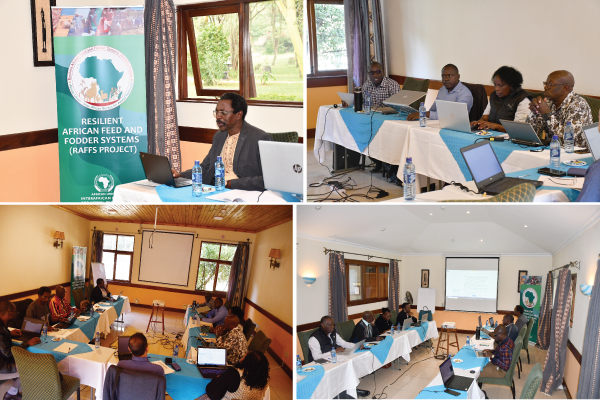
From July 31st to August 4th, 2023, experts have gathered for the Resilient African Feed and Fodder Systems (RAFFS) Project's Expert Workshop. Staff and specialists from the AU-IBAR RAFFS Project are getting together to improve the assessment conceptual framework, data collecting, and analysis tools for a study of feed and fodder actors in six African Union Member States (Cameroon, Kenya, Nigeria, Somalia, Uganda, Zimbabwe).
The objective of the survey will be to assess the effects of Triple Cs: Climate-related challenges (Drought/Floods), Covid-19, and Conflict (Russia – Ukraine) on African Feed and Fodder Systems.
By the end of the workshop, a number of outputs are expected, notably:
(i) The draft RAFFS Assessment Framework, Data Collection Tools and Analytical Framework
(ii) Draft Literature Review and List of References
(iii) Guidelines for the Approach to Scheduling and Collection of Data in the Member States
(iv) Draft Call for Proposals for Coordinated Emergency Response Actions in the selected Member States
(v) Materials for Introducing the Assessment to Hon. Ministers in Charge of Livestock and other identified respondents
Feeding constitutes the primary input in livestock production, accounting for more than 60% of the production costs.The primary focus of this assessment is on the factors of access, availability, price trends, and emergency measures implemented to mitigate shortages and improve access to feed and fodder. Additionally, this assessment examines the impact of these measures on the availability of livestock-sourced foods.
The RAFFS Project is initiated by AU-IBAR and the Bill & Melinda Gates Foundation. The project aims to make a significant contribution to food security and nutrition in Africa by ensuring that Africa’s livestock sector continues to provide a sustainable source of food, livelihoods and income for millions of people. The project will run for three years from December 2022 to December 2025 and will address the adverse effects of the recent global triple C crises: Covid-19, climate shocks, and the conflict between Ukraine and Russia.
Details of the assessment will be communicated in due course.

